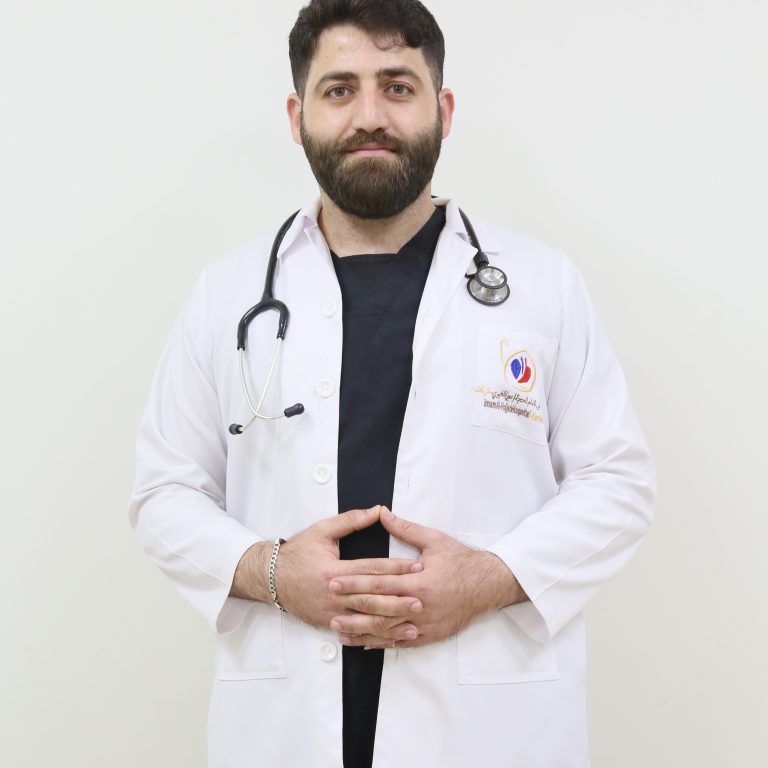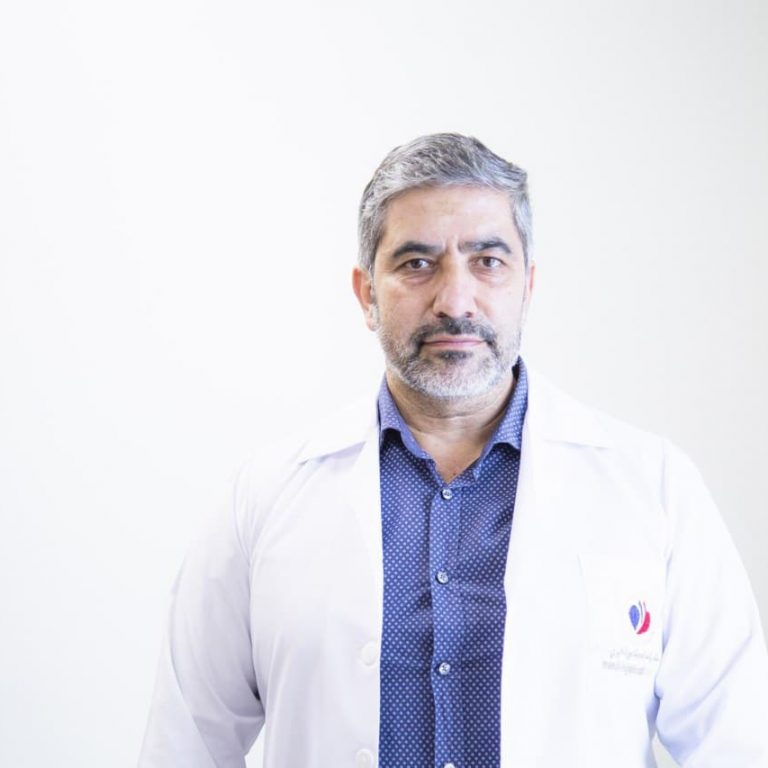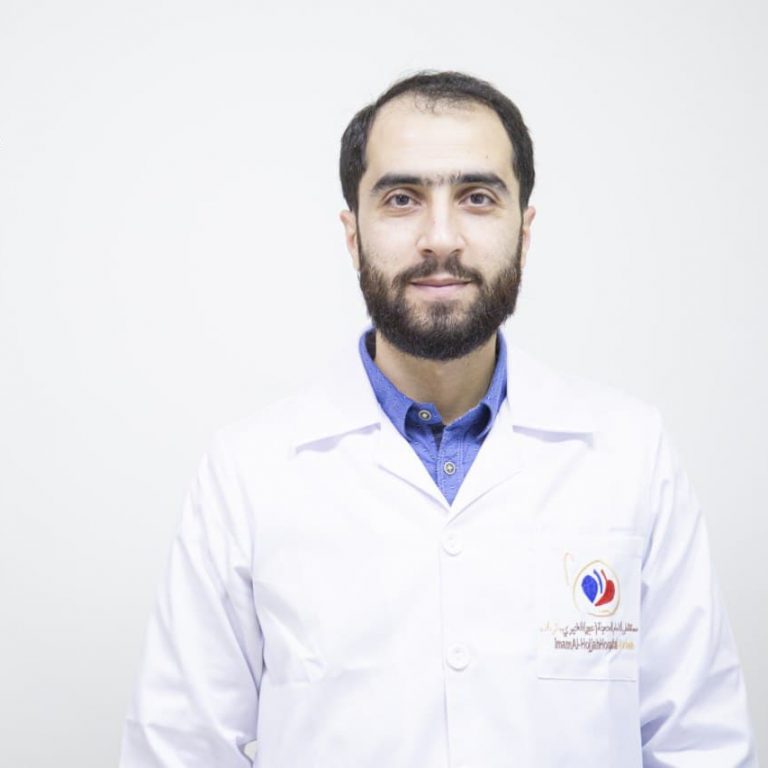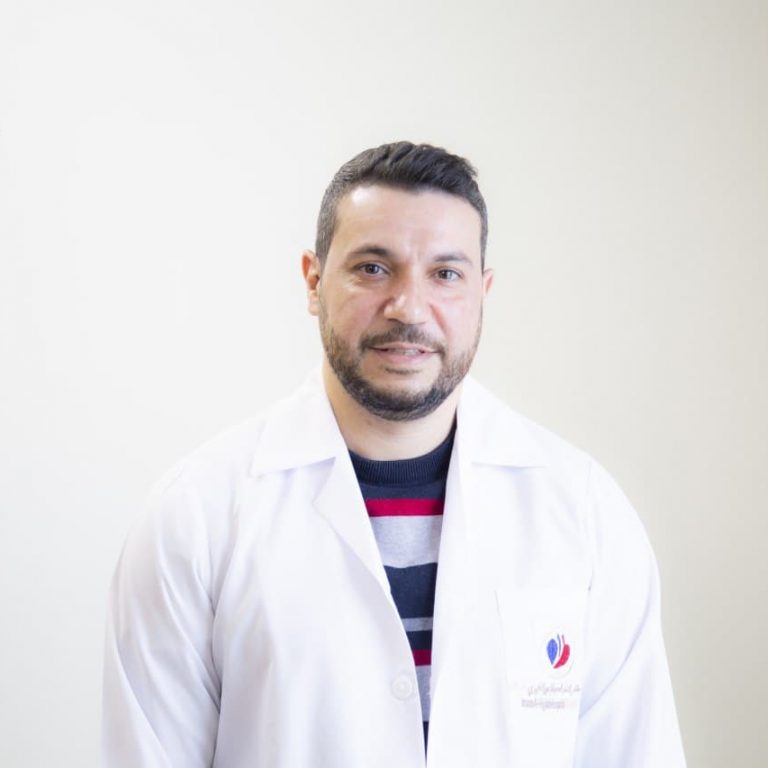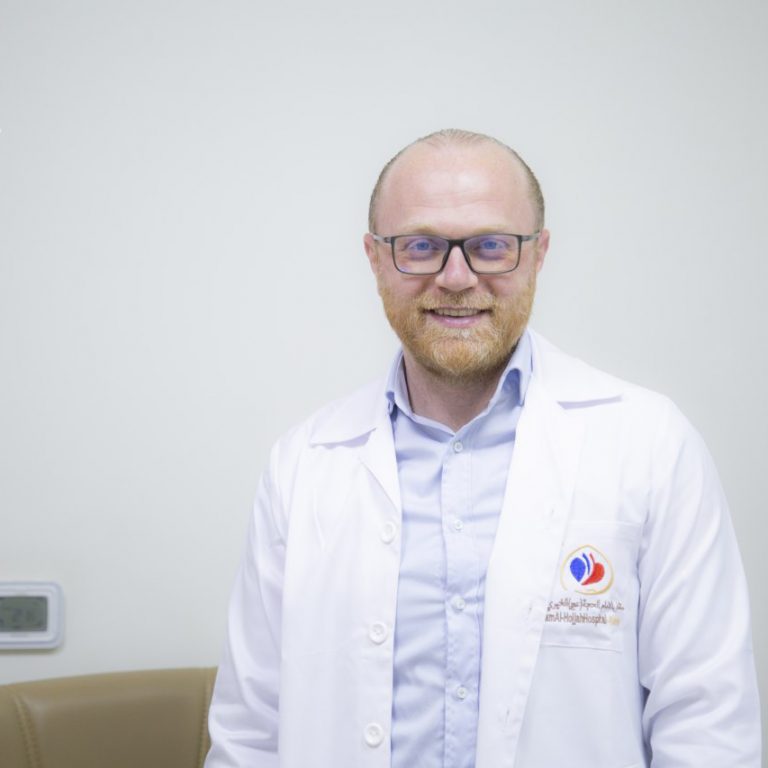Cardiac Catheterization Unit
This department offers its services at Imam Al-Hujjah Hospital 24/7. It consists of diagnostic catheterization and therapeutic coronary catheterization. The department is supervised by cardiologists specialized in catheterization. The examination is done with one of the world’s best advanced Philips devices, the angioplasty balloons and meshes are top-quality and F.D.A approved.
Catheterization is performed in urgent cases (heart attack) and for patients referred by their physician, with the possibility of doing therapeutic catheterization for more than one artery in a single session and treating severe coronary artery disease, in addition to the possibility of reducing congenital heart defects (hole in the heart) with an umbrella catheter.
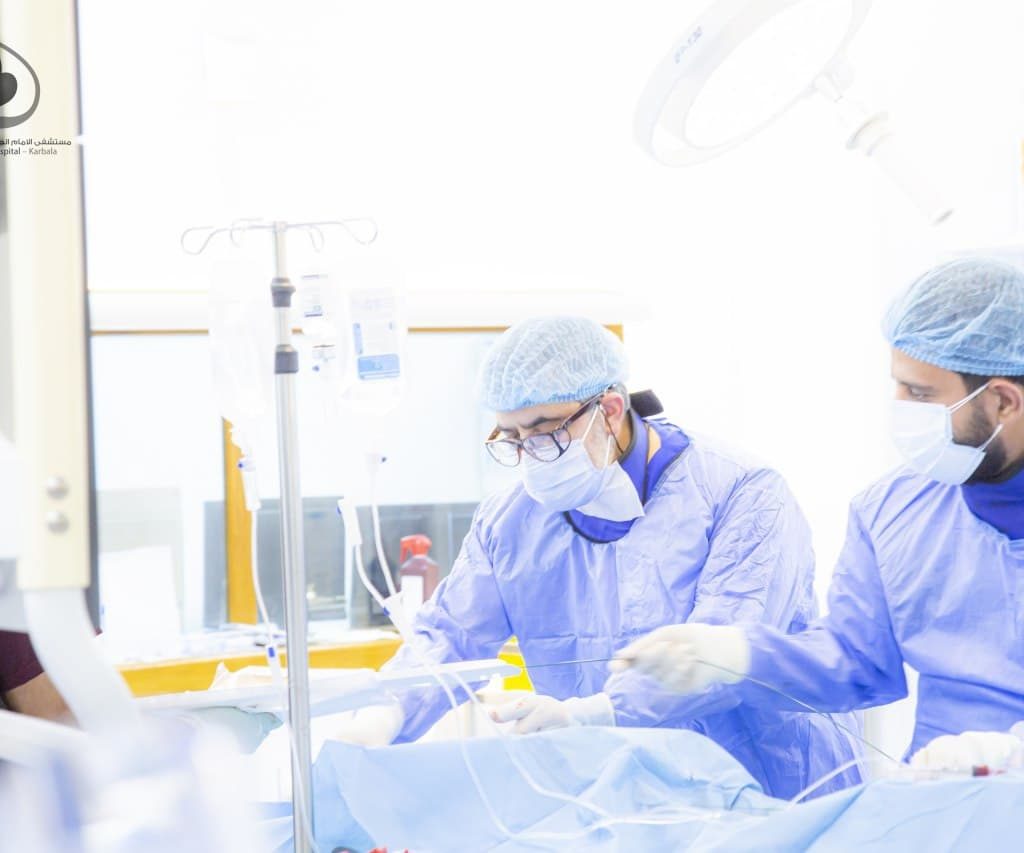
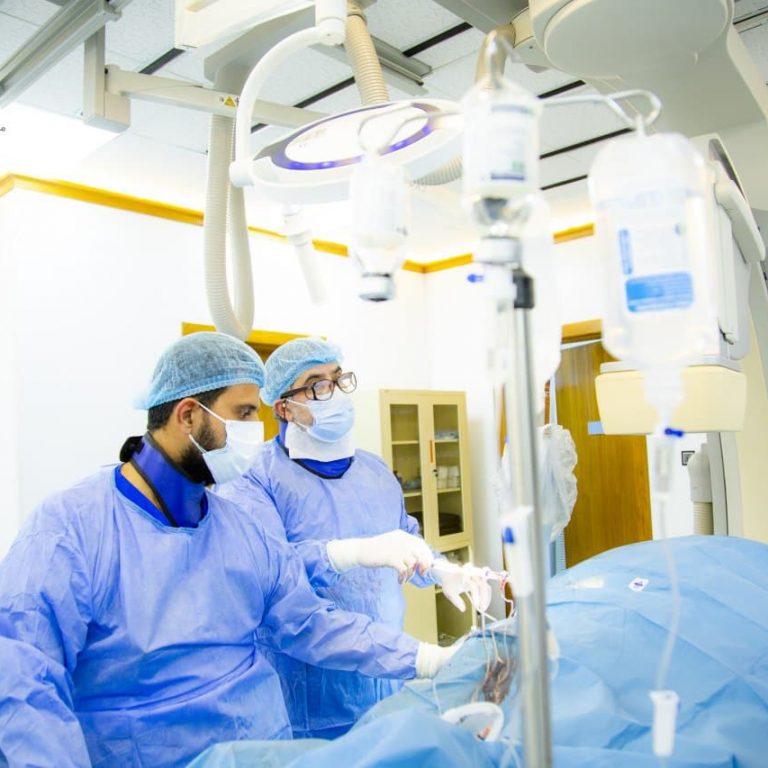
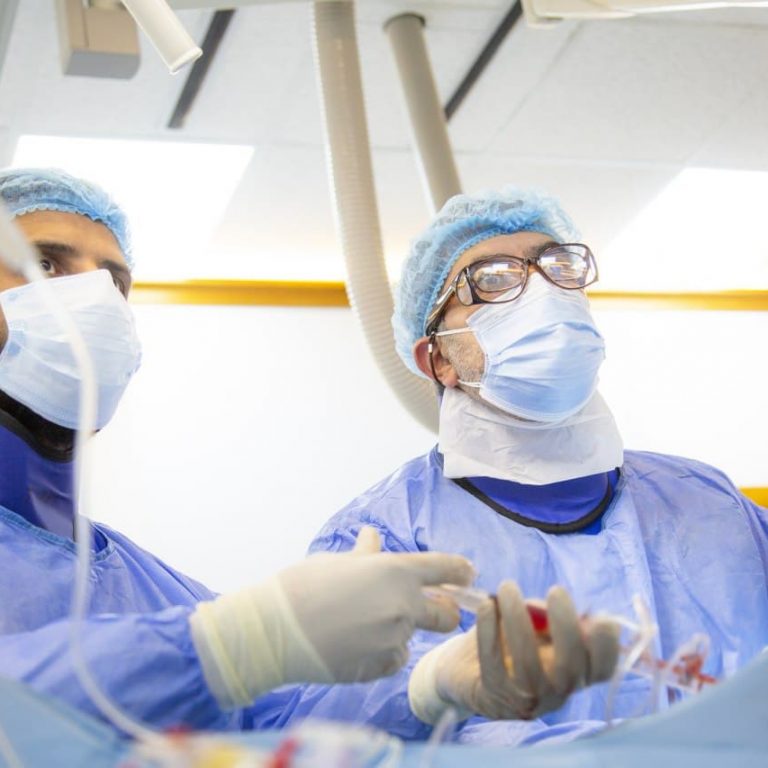
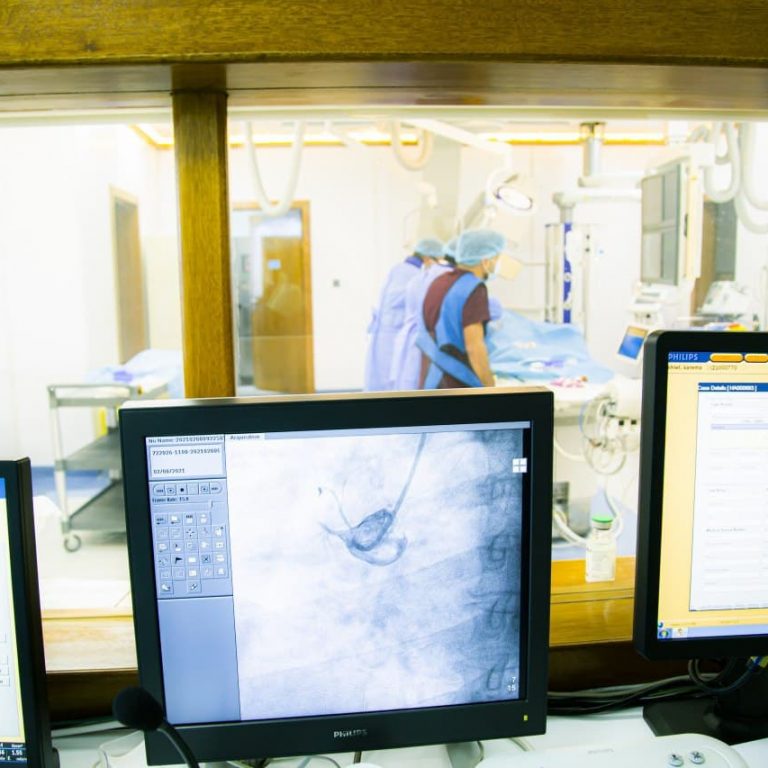
Diagnostic Catheterization
It’s an examination to check the function of the coronary arteries for any blockage or narrowing, in order to choose the necessary treatment.
- Examination is performed in the cath lab by coloring the arteries with a special dye.
- The procedure is done under local anesthesia.
- A local anesthetic is given though the top of the thigh or wrist, and these are the two popular methods of catheterization.
- A narrow rubber tube is inserted into the blood circulation through the anesthetized location (catheter).
- Multiple x-ray images are taken for the coronary arteries and cardiac function.
Therapeutic Cardiac Catheterization
- If the physician finds blockages or narrowing in one of the coronary arteries, he may decide to perform catheter intervention (catheter treatment).
- The patient must follow the same instructions mentioned above, and also take the necessary medicine prescribed by his doctor in order to be prepared for the operation. Blood thinners are important, like Aspirin and Clopidogrel.
- There are some instructions for patients with diabetes, renal disorders, bleeding ulcers and others. The specialist doctor is expected to be aware of the patient’s condition and instruct him accordingly.
- The operation includes the same steps of diagnostic catheterization, in addition to opening the narrowed/blocked artery with a balloon and implanting meshes (supports) into the artery to keep it open. These meshes remain in the arteries for life.
- The surgery usually takes 45 – 60 minutes and the patient must stay at the hospital for approximately 24 hours to be monitored.
- It’s important for the patient to commit to taking his prescribed medicines, especially blood thinners because they keep those meshes open.
- It’s important for the patient to ask any question that occurs to him. We believe that a patient’s health is the specialists’ responsibility and they must clarify all matters for the patient to easily comprehend his health condition and the importance of this surgery, because the patient is an essential partner in caring for his own health.
Cardiac Care Unit (CCU):
It’s a health unit concerned with caring for patients suffering from heart attacks, angina, heart rhythm disorder, heart muscle failure, and other cardiac disorders that require attentive care and constant treatment, like the patients of therapeutic cardiac catheterization.
Our CCU consists of (6) separate rooms, including two isolation rooms. Each room receives one patient and his chaperon and it has a separate bathroom. There’s a trained nurse for every two patients at the CCU and the unit is supervised by a cardiologist at all times.
Each room is equipped with a control panel, a cardiac monitoring device for all vital functions, a drain pump, an injection pump, an oxygen tank, and a suction machine (fixed to the wall).
This unit contains the latest medical devices and equipment, such as: ICU beds, ventilators, defibrillators, crash carts, IV therapy, modern heart monitors, portable echocardiography device. This unit also has a special monitoring system connected to every device and wireless monitors that detect danger and changes in the patient’s vital functions.
The most prominent feature of the CCU is the ability to remotely measure and monitor the heart rhythm via continuous echocardiography, making it easy to quickly intervene (with meds or electric shocks) in case of a disturbance in the heart rhythm.
